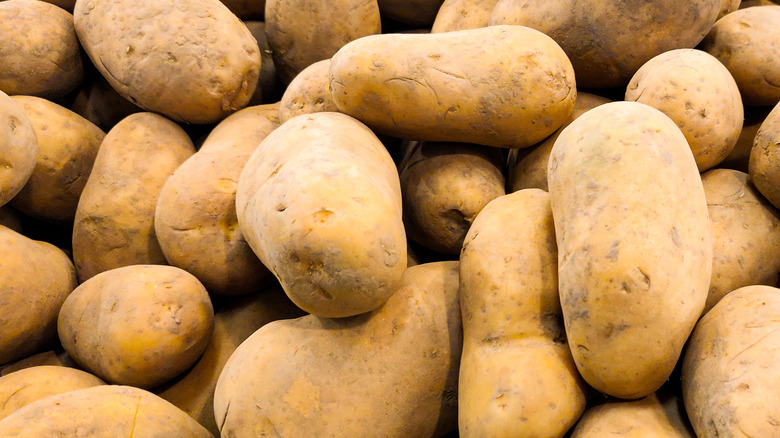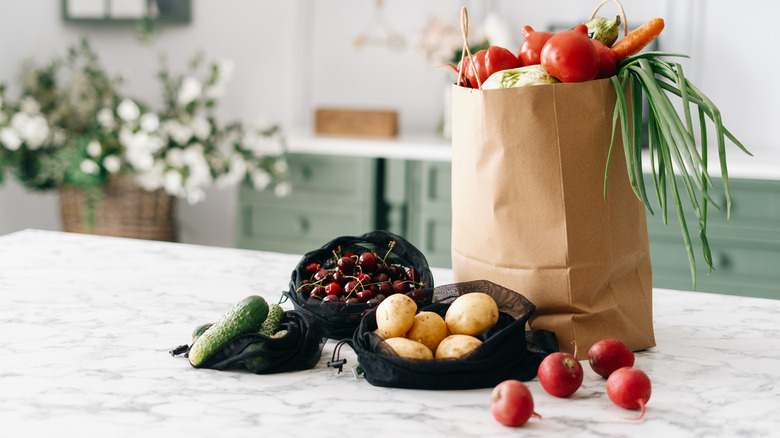How Long Can You Store Potatoes On The Counter
Did you know that onions and potatoes should never be stored next to each other because the ethylene gases in onions can accelerate sprouting in potatoes? According to Consumer Reports, it's true. It's also one of many fascinating tidbits about potatoes that make storing this delicious root vegetable — well, it's definitely delicious in its French fries or mashed potato forms — a little more nuanced than you may have thought.
For instance, you shouldn't keep potatoes in the refrigerator because it turns potato starches into sugars, per Allrecipes. What is the best place to store potatoes then? Well, potatoes don't like sunlight and they don't like the too cool refrigerator either. What they do like is cool, dark, and humid places like cellars or pantries, where the temperature is between 45 and 55 degrees Fahrenheit. Properly stored in these conditions, they can last for up to two months, Allrecipes confirms.
Meanwhile, potatoes stored at room temperature will keep for only about two weeks. This is why, by the way, countertops are not the ideal place to store potatoes ... although it's typically fine if you intend to consume them within that two-week timeframe.
Why proper potato storage is important
Potatoes are a bit finicky. We mentioned that they don't like sunlight. The reason for this, according to the Rural Sprout, is that it causes them to develop green spots on their skin, which are not only bitter-tasting, but toxic. Potatoes also don't like too much moisture, which is why you should never keep them in plastic bags ... unless, of course, you perforate the bags so the potatoes can breathe and they don't retain moisture. What, you didn't know that potatoes can breathe? Yep, per Food52, they can, which is why keeping them well-ventilated in a mesh or paper bag is preferred.
Beware sprouting in potatoes. What causes sprouting? When starches are converted into sugar, Green Upside reports, the potato now has the energy needed to sprout. But temperature is a crucial component in this process. The warmer the temperature, the more quickly your potato will sprout. Above 70 degrees potatoes reach the ideal temperature for sprouting, per Green Upside, which means storing potatoes on your counter at room temperature is basically encouraging accelerated spoilage.
There is some debate about whether you can still eat sprouted potatoes, but as Healthline cautions, sprouting causes increased levels of glycoalkaloid compounds like solanine and chaconine, which are toxic. So for safety's sake, it's best to avoid eating these sprouted potatoes; and of course, never eat moldy potatoes, since these can contain lethal levels of solanine, per Smithsonian.

